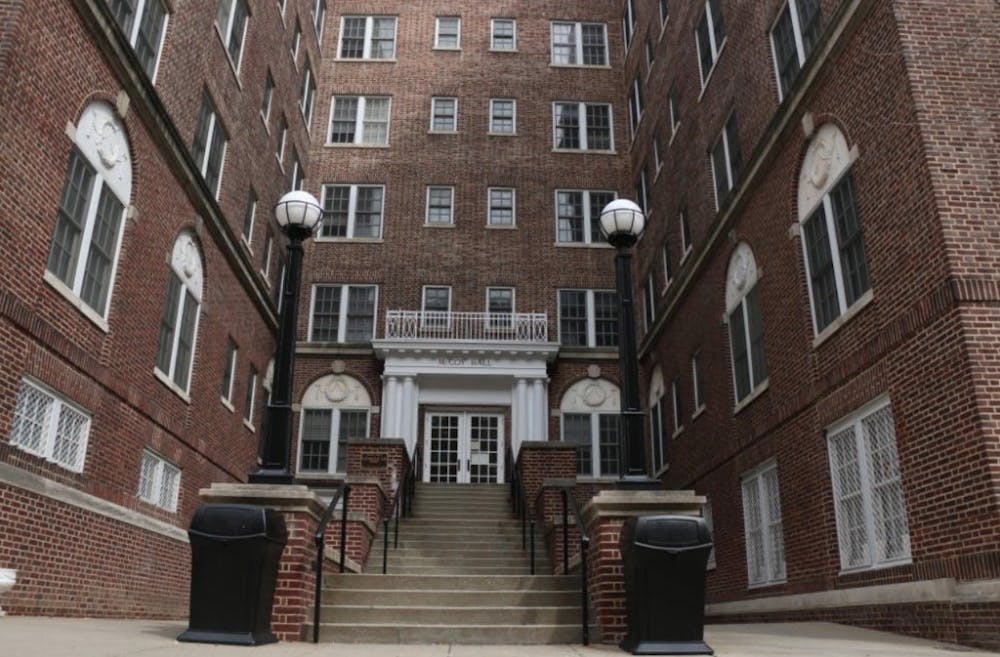Housing Operations clarified its visitation policy for Hopkins students and overnight guests for on-campus housing in an email broadcast on Oct. 22.
Effective Oct. 25, all overnight guests must be Hopkins affiliates, a change from the previous University policy that allowed non-Hopkins affiliates to stay overnight. The email also reiterated a previous policy that Hopkins students must be signed in overnight if they are not residents at the specific residence hall, a policy that the University says will now be enforced rigorously.
Housing Operations clarified that “overnight” is defined as the period between 12 a.m. to 8 a.m., during which Hopkins students must register other students as guests before they enter the residence hall.
In an email to The News-Letter, Vice President for Communications Andrew Green explained the reason behind this change and discussed the need for an updated policy regarding non-Hopkins affiliates amidst the pandemic.
“COVID-19 cases remain low, in part, because of adherence to testing and vaccination compliance by JHU students, faculty, and staff,” he wrote. “Given JHU cannot track compliance of JHU public health guidelines by non-JHU affiliates, the university clarified that it limits access to its residence halls by those who aren’t required to follow these JHU guidelines.”
In an interview with The News-Letter, sophomore William Tong stated that restricting hours for non-Hopkins affiliates seems arbitrary.
“[The University] is allocating a certain amount of time where guests can’t be there for reasons that are relatively unclear,” he said. “It’s not like COVID-19 only spreads between midnight and 8.”
Like Tong, freshman Mariel Lindsay noted that guests who may be asymptomatic are still able to come into the dorms during the day, a risk that is not mitigated by the new policy; however, she does recognize what the University may be trying to achieve by limiting guests during the night.
“It’s definitely going to be inconvenient for a lot of us, but it does make me feel a bit reassured that the only residents that can stay are those that are COVID-compliant,” she said. “I understand why they made this decision, but I don’t see what difference it makes when the same guests can stay in the residence halls during the day.”
Lindsay sympathizes with those in relationships.
“I feel like I could’ve had friends and family over, but now it’s not even an option,” she said. “I know people who are in long-distance relationships, and staying in the room would’ve been much easier than booking a hotel room.”
Freshman Jake Rasmussen, who is currently in a long-distance relationship, commented on how the policy disrupts his upcoming plans in an interview with The News-Letter.
“I’m pretty frustrated by it because it came very abruptly. If people have flights booked, it can really mess up some plans, so some advance notice would have been nice,” he said. “My girlfriend was going to come this Thursday, and this policy complicates our ability to see each other.”
Rasmussen also expressed that this update may not serve the purpose that the University hoped it would. Though he finds that the overnight hours are justified, he believes that the University should explore alternative options.
“Honestly, this policy could do the inverse and cause more harm than good. By limiting people coming into the residential halls, you’re effectively encouraging people to leave campus,” he said. “Though the administration has no control over those going to other campuses and towns, they have the ability to control whether guests need to produce a test to ensure that those coming to Hopkins are safe.”
Students also pointed out that having to sign in Hopkins-affiliated guests overnight poses a problem for casual relationships.
In an interview with The News-Letter, freshman Eileen Stiles discussed the impact that signing in overnight guests might have on queer students.
“Anonymity is a big issue in general because I don’t think anyone’s sex life is anyone’s business, particularly the University’s,” he said. “A lot of people are still in the closet, and there is a lot of shame surrounding sex for the queer community. Not wanting to attach to any stereotypes or reinforce anything negative makes having sex and hooking up hard.”
Stiles believes the lack of a queer presence on campus makes it difficult for students to find casual relationships on campus. They also expressed the trouble that this new policy will bring for polyamorous students.
“Seeing multiple people is difficult because other people notice and make comments, regardless of how ethical it is between you and your partners,” she said. “People will make assumptions and blame you for things even if you and the people you are seeing have healthy and strong communication.”
Despite recognizing the need for the policy update, Lindsay remains hopeful that the University will take students’ opinions into consideration in the future.
“Again, I understand what they are trying to do in terms of COVID policies and public health, but I hope [the administration] considers what students are saying about the issue,” Lindsay said. “There are many solutions that students can offer, so I hope they take the time to explore those.”





